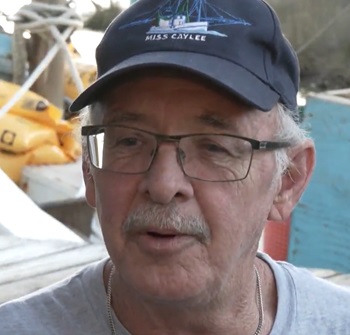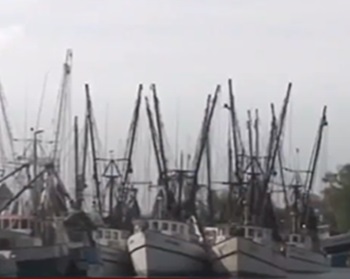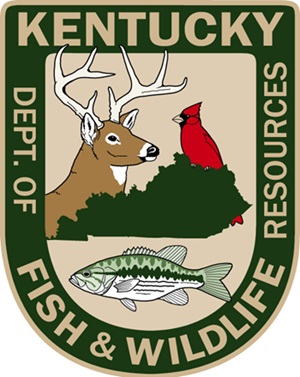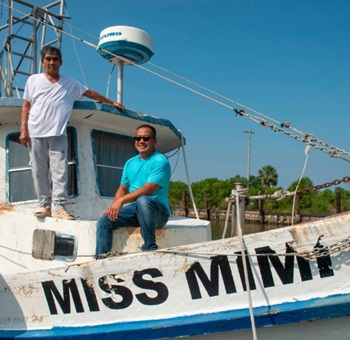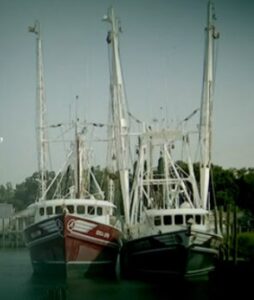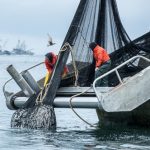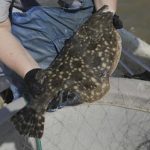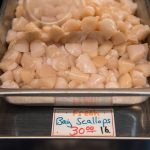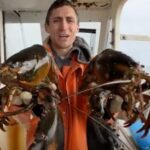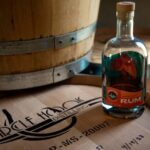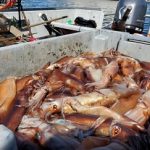Tag Archives: Alabama
Shrimp labeling bill could be a lifesaver for Gulf industry
 If you are what you eat, you might want to put down that shrimp po’boy. That’s unless, of course, you know you’re eating Gulf shrimp. State Rep. Terri Leo Wilson partnered with six other Gulf Coast representatives on House Bill 2343, which would keep restaurants from selling imported farm-raised shrimp and implying it was caught by Texas shrimpers. The timing is crucial. The Texas shrimp industry is struggling under pressure of inferior, cheap foreign shrimp flooding the market, she said. Leo Wilson and others testifying in support of the bill Wednesday said Texas should follow the lead of Louisiana, Alabama and other Gulf Coast states that have put shrimp labeling requirements into law. Such laws have bolstered their respective shrimp industries, they said. more, >>CLICK TO READ<< 10:30
If you are what you eat, you might want to put down that shrimp po’boy. That’s unless, of course, you know you’re eating Gulf shrimp. State Rep. Terri Leo Wilson partnered with six other Gulf Coast representatives on House Bill 2343, which would keep restaurants from selling imported farm-raised shrimp and implying it was caught by Texas shrimpers. The timing is crucial. The Texas shrimp industry is struggling under pressure of inferior, cheap foreign shrimp flooding the market, she said. Leo Wilson and others testifying in support of the bill Wednesday said Texas should follow the lead of Louisiana, Alabama and other Gulf Coast states that have put shrimp labeling requirements into law. Such laws have bolstered their respective shrimp industries, they said. more, >>CLICK TO READ<< 10:30
19 Baldwin County restaurants claiming imported shrimp is locally sourced: report
 An investigation into the Baldwin County restaurant scene and shrimp served has been finalized, leading to the finding of 19 restaurants making false claims, News 5 has learned. According to a SeaD Consulting news release, the Southern Shrimp Alliance commissioned the group to genetically analyze shrimp dishes at 44 restaurants in the Gulf Shores, Orange Beach and Foley areas. This investigation into the restaurants began after genetic testing of shrimp at the 2024 National Shrimp Festival, which found that four out of five vendors were selling imported shrimp, according to the release. The consulting group found that 25 of the 44 restaurants serve “authentic Gulf wild-caught shrimp,” while 19 serve imported shrimp, claiming their shrimp was locally sourced. The group said they also found that the seven “boil houses” were serving authentic, local shrimp. Links, more, >>CLICK TO READ<< 15:49
An investigation into the Baldwin County restaurant scene and shrimp served has been finalized, leading to the finding of 19 restaurants making false claims, News 5 has learned. According to a SeaD Consulting news release, the Southern Shrimp Alliance commissioned the group to genetically analyze shrimp dishes at 44 restaurants in the Gulf Shores, Orange Beach and Foley areas. This investigation into the restaurants began after genetic testing of shrimp at the 2024 National Shrimp Festival, which found that four out of five vendors were selling imported shrimp, according to the release. The consulting group found that 25 of the 44 restaurants serve “authentic Gulf wild-caught shrimp,” while 19 serve imported shrimp, claiming their shrimp was locally sourced. The group said they also found that the seven “boil houses” were serving authentic, local shrimp. Links, more, >>CLICK TO READ<< 15:49

Alabama’s ‘demolished’ seafood industry could be saved by Trump’s ‘Liberation Day’ tariffs
President Donald Trump rolled out his tariff regime on Wednesday, also known as “Liberation Day,” by raising tariffs, including 34% more on imports from China, 46% on Vietnam and 32% on Taiwan. While the world reacted, people in Alabama’s coastal community are hopeful the move could save a dying industry. Billy Parks, the owner of Billy’s Seafood in Bon Secour, said his business has struggled for nearly two decades. “We’ve had a lot of influx of the imported, farm-raised Asian shrimp coming in and has pretty much demolished the shrimp seafood market as far as the local shrimp sales,” Parks explained. “So, when the fuel price started spiking real high, the shrimp prices started going way down, then it just put a lot of boats out of business.” Photos, more, >>CLICK TO READ<< 07:41

How the Alabama Seafood Labeling Law is affecting Gulf Coast industry
Almost a year after being signed into law, residents should be beginning to see impacts the Alabama Seafood Labeling Law is having on the local industry. The Seafood Labeling Law was signed into law in May 2024, requiring in-state food establishments, such as grocery stores, restaurants, food trucks and in-store delis, to disclose and label whether any seafood being served was imported or domestically produced, as well as whether the seafood was farm-raised or wild-caught. Sellers are encouraged, but not required, to disclose the country of origin of imported foreign fish or shellfish. It also requires seafood suppliers who sell to these establishments within the state to disclose the country of origin so the retailers can accurately inform customers. It does not apply to ingredients in processed food. more, >>CLICK TO READ<< 07:47
Genetic testing shows fraud in domestic shrimp supply
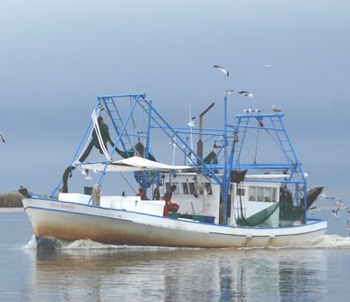 The ruse was first exposed in Morgan City last summer, at the Louisiana Shrimp and Petroleum Festival. Acting on a hunch and armed with a rapid genetic test, a team of consultants for the domestic shrimp industry ordered cooked plates of shrimp from five different vendors. The shrimp was supposedly sourced from the Gulf of Mexico — but within minutes, the consultants say they discovered the truth. Four of the five samples contained genetic markers of imported farm-raised shrimp, not Gulf shrimp like the vendors claimed. The team was with SeaD Consulting, a Houston-based company dedicated to rooting out seafood fraud. Funded in part by the Southern Shrimp Alliance, an industry group for shrimp fishers and processors, SeaD is pioneering this new type of rapid genetic test, which specializes in identifying shrimp species. more, >>CLICK TO READ< 08:18
The ruse was first exposed in Morgan City last summer, at the Louisiana Shrimp and Petroleum Festival. Acting on a hunch and armed with a rapid genetic test, a team of consultants for the domestic shrimp industry ordered cooked plates of shrimp from five different vendors. The shrimp was supposedly sourced from the Gulf of Mexico — but within minutes, the consultants say they discovered the truth. Four of the five samples contained genetic markers of imported farm-raised shrimp, not Gulf shrimp like the vendors claimed. The team was with SeaD Consulting, a Houston-based company dedicated to rooting out seafood fraud. Funded in part by the Southern Shrimp Alliance, an industry group for shrimp fishers and processors, SeaD is pioneering this new type of rapid genetic test, which specializes in identifying shrimp species. more, >>CLICK TO READ< 08:18
The last ‘I love you.’ Three months in, a mother struggles to overcome incredible loss
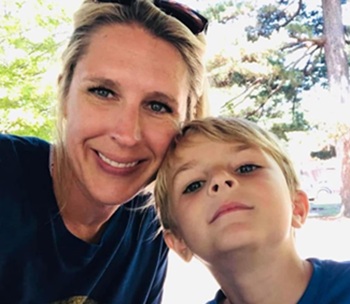
Meg Slezak takes a selfie with her 7-year-old son, Hunter. The boy and his father, Michael Slezak, died in a shrimp boat accident in November 2024.
Her voice sounded soft and shaky. She took deep breaths. She cried. She even chuckled a few times when she thought back to the joy her husband and son brought her. Three months after she lost them, Meg Slezak of Wilmer, Alabama, wants to tell her story. The sun had yet to rise on November 29, 2024. It was the day after Thanksgiving- the day the Slezaks gathered to give thanks for their wonderful lives, dressed in orange and posed for a family picture. While Meg was getting ready for work, Hunter was bouncing off the walls. He was about to go on his first shrimping adventure. Dad Michael made sure food, water and life preservers were in tow. “Michael liked to spend some alone time with each of our children,” Meg told me. “That day was Hunter’s Day.” They were about to step out the door, on their way to Pelican Bay at Dauphin Island, Alabama. They would be headed toward the boat owned by 69-year-old Sam “Ollie” Wooley, a longtime shrimp boat captain who was a Vietnam Navy veteran. “Both Michael and Hunter gave me a hug,” said Meg. “For some reason, Hunter turned around when he got to the door. He walked back to me and gave me another hug,” added Meg. Hunter said, “I love you.” Meg said, “I love you, too.” Photos, more, >>CLICK TO READ<< 15:21
Another festival caught selling imported shrimp as ‘Gulf’ shrimp
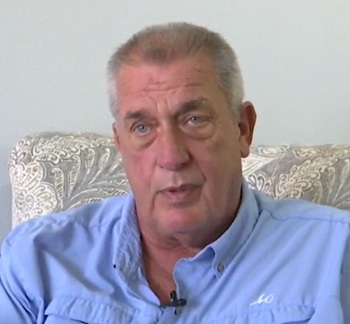 The Morgan City Shrimp and Petroleum Festival was recently in the spotlight for selling imported shrimp. The same consultant group who genetically tested the shrimp continued their investigation at the National Shrimp Festival in Gulf Shores and found the same situation. SeaD Consulting tested five vendors at the National Shrimp Festival that advertised to have Gulf shrimp. Of the five, only one had authentic Gulf shrimp: Rouse’s Supermarket. SeaD Consulting recently found similar results for the Shrimp and Petroleum Festival in Morgan City, with only one of the five vendors sampled actually serving shrimp from the Gulf of Mexico. Video, links, more, >>CLICK TO READ<< 07:39
The Morgan City Shrimp and Petroleum Festival was recently in the spotlight for selling imported shrimp. The same consultant group who genetically tested the shrimp continued their investigation at the National Shrimp Festival in Gulf Shores and found the same situation. SeaD Consulting tested five vendors at the National Shrimp Festival that advertised to have Gulf shrimp. Of the five, only one had authentic Gulf shrimp: Rouse’s Supermarket. SeaD Consulting recently found similar results for the Shrimp and Petroleum Festival in Morgan City, with only one of the five vendors sampled actually serving shrimp from the Gulf of Mexico. Video, links, more, >>CLICK TO READ<< 07:39
Tropical Storm Milton Path, Tracker As Potential Hurricane Nears Florida
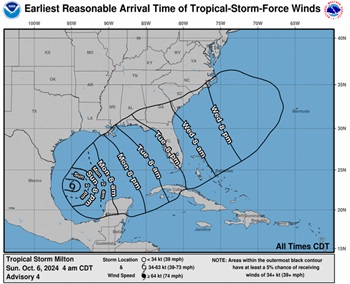 The latest forecast from the National Hurricane Center, released at 4 a.m. Central Time on Sunday, said that Milton will quickly intensify as it moves eastward and northeastward, making landfall in Florida as a Tropical Cyclone on Wednesday. As of Sunday morning, the center of the tropical storm has maximum wind speeds of 50 mph and is moving east at 5 mph. By Monday, winds are forecast to increase to between 74 and 110 miles per hour, and by Tuesday, have winds in excess of 110 miles per hour. The forecast path will cross Florida east to west, centering on Tampa Bay, with the edge of the storm crossing southeastern Alabama, southern Georgia, southeastern South Carolina, and Alabama, southern Georgia, southeastern South Carolina more, >>CLICK TO READ<< 09:32
The latest forecast from the National Hurricane Center, released at 4 a.m. Central Time on Sunday, said that Milton will quickly intensify as it moves eastward and northeastward, making landfall in Florida as a Tropical Cyclone on Wednesday. As of Sunday morning, the center of the tropical storm has maximum wind speeds of 50 mph and is moving east at 5 mph. By Monday, winds are forecast to increase to between 74 and 110 miles per hour, and by Tuesday, have winds in excess of 110 miles per hour. The forecast path will cross Florida east to west, centering on Tampa Bay, with the edge of the storm crossing southeastern Alabama, southern Georgia, southeastern South Carolina, and Alabama, southern Georgia, southeastern South Carolina more, >>CLICK TO READ<< 09:32
Shrimply the best: Discover Alabama’s shrimp industry
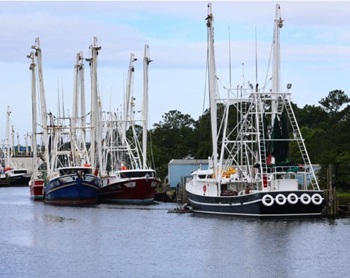 As Bubba Blue famously said in “Forrest Gump,” shrimp is the fruit of the sea. Whether you like it barbecued, boiled, broiled, baked or sautéed, this small creature sure makes a big impact in Alabama. The shrimp industry in Alabama consists of both wild-caught and farm-raised species. Alabama waters are home to between 15 and 22 wild shrimp species. However, only three of these are commercially caught: brown, white and pink. On inland farms, Luke Roy, an Alabama Extension aquatic resources Extension professor, said farmers often raise Pacific white shrimp. “Pacific white shrimp are not native to the Gulf of Mexico, and they are the species of choice by most producers,” Roy said. “They are desirable because of their tolerance for low-salinity water. They also have a desirable feed conversion ratio and the ability to be cultured at high densities with low aggression.” Photos, more, >>CLICK TO READ<< 06:22
As Bubba Blue famously said in “Forrest Gump,” shrimp is the fruit of the sea. Whether you like it barbecued, boiled, broiled, baked or sautéed, this small creature sure makes a big impact in Alabama. The shrimp industry in Alabama consists of both wild-caught and farm-raised species. Alabama waters are home to between 15 and 22 wild shrimp species. However, only three of these are commercially caught: brown, white and pink. On inland farms, Luke Roy, an Alabama Extension aquatic resources Extension professor, said farmers often raise Pacific white shrimp. “Pacific white shrimp are not native to the Gulf of Mexico, and they are the species of choice by most producers,” Roy said. “They are desirable because of their tolerance for low-salinity water. They also have a desirable feed conversion ratio and the ability to be cultured at high densities with low aggression.” Photos, more, >>CLICK TO READ<< 06:22
Alabama politician advocates for imported seafood inspection bill
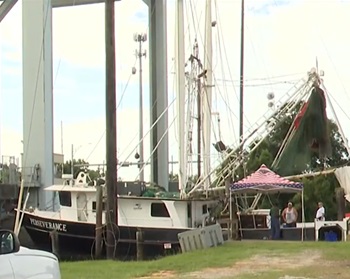 Representative Chip Brown of Alabama House District 105 is set to introduce House Bill One during next year’s legislative session. This bill aims to impose a $200 fee on seafood dealers caught selling imported seafood. The money will fund inspections by the Alabama Department of Public Health. “I think that’s a good thing,” said Tammy Hall, co-owner of Sea Harvest Fresh Shrimp Boat and Bridgeside Seafood Market in Bayou La Batre. “I think the fine should be more than $200, myself.” “It keeps our shrimp prices low,” said Hall. “People can buy an imported shrimp say like jumbo jumbo shrimp for $1.50 a pound .. we can’t afford to sell it for $1.50 a pound with the rising prices of fuel and ice.”To adjust, Hall and her family decided to sell directly to the public. Video, more, >>CLICK TO READ<< 16:07
Representative Chip Brown of Alabama House District 105 is set to introduce House Bill One during next year’s legislative session. This bill aims to impose a $200 fee on seafood dealers caught selling imported seafood. The money will fund inspections by the Alabama Department of Public Health. “I think that’s a good thing,” said Tammy Hall, co-owner of Sea Harvest Fresh Shrimp Boat and Bridgeside Seafood Market in Bayou La Batre. “I think the fine should be more than $200, myself.” “It keeps our shrimp prices low,” said Hall. “People can buy an imported shrimp say like jumbo jumbo shrimp for $1.50 a pound .. we can’t afford to sell it for $1.50 a pound with the rising prices of fuel and ice.”To adjust, Hall and her family decided to sell directly to the public. Video, more, >>CLICK TO READ<< 16:07
Local shrimpers set to rally this weekend to raise awareness against imports
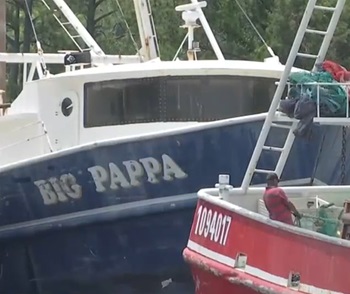 Kerry Mitchell and her husband know the challenges that come with shrimping for a living. Her husband Michael is out dragging his net off Dauphin Island. The couple owns “Salty Pirates Seafood” — and will tell you — the money is not like it used to be — mainly due to the U.S. market being flooded with shrimp from overseas. “We don’t have a level playing field. Even the government is financially supporting it,” said Kerry. The Save Our Shrimpers Act, a federal bill introduced in April of this year aims to stop that. The rally is this Saturday at the “Shrimp Lady” restaurant in Satsuma (5523 Highway 43) from 4 p.m. to 7 p.m. They’ll be local shrimpers, live music — as well as boiled Gulf Coast shrimp for those in attendance. Video, more, >>CLICK TO READ<< 14:29
Kerry Mitchell and her husband know the challenges that come with shrimping for a living. Her husband Michael is out dragging his net off Dauphin Island. The couple owns “Salty Pirates Seafood” — and will tell you — the money is not like it used to be — mainly due to the U.S. market being flooded with shrimp from overseas. “We don’t have a level playing field. Even the government is financially supporting it,” said Kerry. The Save Our Shrimpers Act, a federal bill introduced in April of this year aims to stop that. The rally is this Saturday at the “Shrimp Lady” restaurant in Satsuma (5523 Highway 43) from 4 p.m. to 7 p.m. They’ll be local shrimpers, live music — as well as boiled Gulf Coast shrimp for those in attendance. Video, more, >>CLICK TO READ<< 14:29
Shrimpers on the Coast struggling as season continues
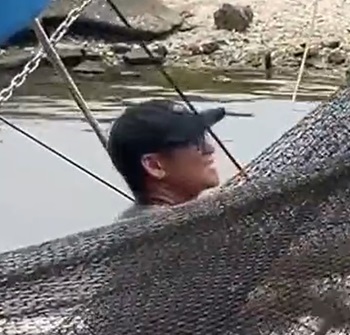 Shrimpers on the Coast say this season hasn’t been too good to them. Quality Seafood in Biloxi says it’s hard to get fresh shrimp right now because there aren’t many fishermen at the docks selling. Manager Troy Rosetti said they’ve had to go to Louisiana and Alabama to get most of the shrimp that they have. “Kind of a falling out, we don’t have as many boats and shrimpers as we used to,” Rosetti said. “We have plenty of shrimp. It’s not a shortage here at our place. It just makes it a lot harder for us to get them.” Chris Lyons is a dock manager in Biloxi who said this shrimp season has been worse than in 2023. Video, more, >>CLICK TO READ<< 10:19
Shrimpers on the Coast say this season hasn’t been too good to them. Quality Seafood in Biloxi says it’s hard to get fresh shrimp right now because there aren’t many fishermen at the docks selling. Manager Troy Rosetti said they’ve had to go to Louisiana and Alabama to get most of the shrimp that they have. “Kind of a falling out, we don’t have as many boats and shrimpers as we used to,” Rosetti said. “We have plenty of shrimp. It’s not a shortage here at our place. It just makes it a lot harder for us to get them.” Chris Lyons is a dock manager in Biloxi who said this shrimp season has been worse than in 2023. Video, more, >>CLICK TO READ<< 10:19
Fisherman remembered as ‘hero’ for saving deckhand after shrimp boat capsizes in Mobile Bay
 Boat captain and shrimper, Mike Bishop, was killed when a waterspout Saturday flipped over his boat, trapping him inside. His deckhand Mark Henderson survived the horror after floating in the water for seven hours. Bishop tried to save Henderson before several others pulled together. Now, he’s being called a hero…and he’s not the only one. Mike’s son Brandon Bishop says this was a team effort from many heroes. “The shrimping community is tight and everybody comes together,” Brandon said. “Especially in these hard times like this. And shrimping is not a job. It’s a way of life and my dad loved it.” “When I went and spoke to Mark his deckhand this morning in the hospital he was still pretty shaken up,” Brandon said. “But he said that my dad gave him a lifejacket and told him to go out back. They were hit by the waterspout, and my dad’s a hero, he saved someone’s life….” Video, more, >>CLICK TO READ<< 12:27
Boat captain and shrimper, Mike Bishop, was killed when a waterspout Saturday flipped over his boat, trapping him inside. His deckhand Mark Henderson survived the horror after floating in the water for seven hours. Bishop tried to save Henderson before several others pulled together. Now, he’s being called a hero…and he’s not the only one. Mike’s son Brandon Bishop says this was a team effort from many heroes. “The shrimping community is tight and everybody comes together,” Brandon said. “Especially in these hard times like this. And shrimping is not a job. It’s a way of life and my dad loved it.” “When I went and spoke to Mark his deckhand this morning in the hospital he was still pretty shaken up,” Brandon said. “But he said that my dad gave him a lifejacket and told him to go out back. They were hit by the waterspout, and my dad’s a hero, he saved someone’s life….” Video, more, >>CLICK TO READ<< 12:27
In wake of Mississippi seafood scandal, Alabama is set to enact mandatory disclosure of origin
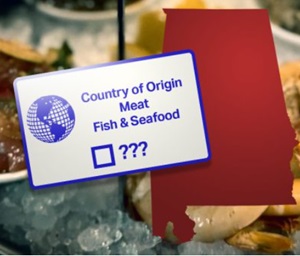 On the tail end of a high-profile seafood fraud case in Mississippi where a restaurant admitted to selling mislabeled imported fish as local Gulf seafood, a new Alabama law will go into effect on October 1, 2024 to prevent similar deception. Alabama State Rep. Chip Brown (R-Hollinger’s Island) introduced a bill requiring Alabama restaurants disclose whether the seafood they serve is either domestic or imported. Governor Kay Ivey signed that bill into law, and later this year, it will go into effect. more, >>CLICK TO READ<< 10:17
On the tail end of a high-profile seafood fraud case in Mississippi where a restaurant admitted to selling mislabeled imported fish as local Gulf seafood, a new Alabama law will go into effect on October 1, 2024 to prevent similar deception. Alabama State Rep. Chip Brown (R-Hollinger’s Island) introduced a bill requiring Alabama restaurants disclose whether the seafood they serve is either domestic or imported. Governor Kay Ivey signed that bill into law, and later this year, it will go into effect. more, >>CLICK TO READ<< 10:17
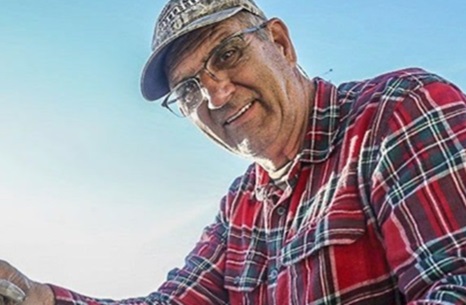
“He passed away doing what he loved;” Local fisherman dies at sea
Mike Bishop and his deckhand, Mark Henderson, set out onto the waters early Saturday morning for the first day of shrimping season. Leaving around 3:00 a.m. to make a three-hour journey to South Mobile Bay. “You know, he’s a hero, he’s a hero. He let someone live and he went down with his ship,” Bishop’s son, Brandon said. Just after 3:00 a.m. the Coast Guard believes a waterspout hit Bishop’s boat, “The Old Navy”, causing them to capsize only 10 minutes from their dock. “The surviving deckhand says the last thing he remembers is my dad handing him a life vest,” Brandon explained. “Telling him to go outside and that was the last time he saw him was up in the wheelhouse.” Video, more, >>Click to Read<< 06:09
Search and rescue operation ended after fisherman found deceased in capsized vessel
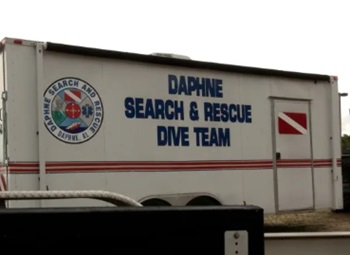 Search and rescue efforts are underway for a missing fisherman in Mobile Bay after a storm early Saturday morning. Authorities say he and another man set out on the water around 3 a.m. for the first day of shrimping season. A storm is believed to have hit the area around 3:30 a.m., causing the boat to capsize. One of the fishermen was recovered by nearby shrimpers and taken to a hospital. Story will be updated, >>CLICK TO READ<< 11:03
Search and rescue efforts are underway for a missing fisherman in Mobile Bay after a storm early Saturday morning. Authorities say he and another man set out on the water around 3 a.m. for the first day of shrimping season. A storm is believed to have hit the area around 3:30 a.m., causing the boat to capsize. One of the fishermen was recovered by nearby shrimpers and taken to a hospital. Story will be updated, >>CLICK TO READ<< 11:03
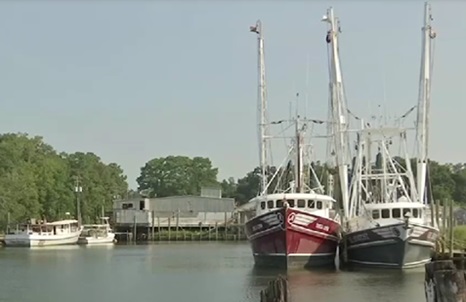
Alabama on verge of requiring sellers to say where their seafood comes from
The seafood industry that put this small city on the map says it is in crisis, buffeted by foreign imports that have driven down the price of shrimp to as little as a dollar per pound. Those prices are comparable to what shrimp fetched in the early 1980s – too low, Steve Sprinkle said, for many operators even to take their boats out. But the Alabama Legislature is trying to at least make it easier for consumers who want to buy local. A bill that got final approval this week would require restaurants to include “country of origin” information on or with the menu. There’s a similar requirement for good trucks and stores. Video, more, >>CLICK TO READ<< 09:48
Celebrating National Shrimp Day on the Northern Gulf Coast
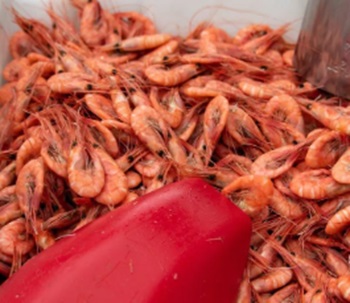 May 10th marks National Shrimp Day. For the Northern Gulf Coast, which includes the shores of Texas, Louisiana, Mississippi, Alabama, and Florida, shrimp holds a special significance as a source of food, economic growth, and cultural heritage. The warm, nutrient-rich waters of the Gulf of Mexico provide an ideal environment for shrimp to thrive, making the Northern Gulf Coast one of the most productive shrimping regions in the world. The area is home to four main commercial shrimp species: white shrimp, brown shrimp, pink shrimp, and Royal Red Shrimp. These shrimps are known for their unique flavors and textures, with Royal Red Shrimp being a highly prized delicacy. more, >>CLICK TO READ<< 09:18
May 10th marks National Shrimp Day. For the Northern Gulf Coast, which includes the shores of Texas, Louisiana, Mississippi, Alabama, and Florida, shrimp holds a special significance as a source of food, economic growth, and cultural heritage. The warm, nutrient-rich waters of the Gulf of Mexico provide an ideal environment for shrimp to thrive, making the Northern Gulf Coast one of the most productive shrimping regions in the world. The area is home to four main commercial shrimp species: white shrimp, brown shrimp, pink shrimp, and Royal Red Shrimp. These shrimps are known for their unique flavors and textures, with Royal Red Shrimp being a highly prized delicacy. more, >>CLICK TO READ<< 09:18
75th annual Blessing of the Fleet: The last for some shrimpers
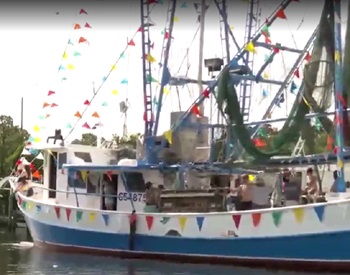 Archbishop Thomas Rodi led the town in prayer for safety and fruition over the waters in Bayou La Batre. After the prayer, the Archbishop, the Blessing of the Fleet Queens, and Father Micheal Long Vu boarded a boat. Father Vu dropped a blessed wreath into the water to honor the souls who were lost at sea. However, despite the yearly tradition, shrimpers say the blessings are not going very far. “We’re all probably going to have a little cry it’s our last year doing it and we will probably not be going to be able to do it again,” Haleigh Keith lamented. For the past 20 years, Haleigh and Peyton have gone shrimping with their grandfather on the family’s shrimping boat called “God’s Blessing’s”. However, that boat is going on sale at the end of the season. Video, more, >>CLICK TO READ<< 11:41
Archbishop Thomas Rodi led the town in prayer for safety and fruition over the waters in Bayou La Batre. After the prayer, the Archbishop, the Blessing of the Fleet Queens, and Father Micheal Long Vu boarded a boat. Father Vu dropped a blessed wreath into the water to honor the souls who were lost at sea. However, despite the yearly tradition, shrimpers say the blessings are not going very far. “We’re all probably going to have a little cry it’s our last year doing it and we will probably not be going to be able to do it again,” Haleigh Keith lamented. For the past 20 years, Haleigh and Peyton have gone shrimping with their grandfather on the family’s shrimping boat called “God’s Blessing’s”. However, that boat is going on sale at the end of the season. Video, more, >>CLICK TO READ<< 11:41
Alabama eyes source-disclosure requirements for seafood, whether it was wild-caught or farmed
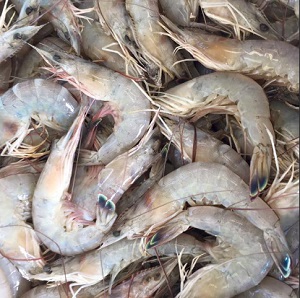 Restaurants in Alabama would be required to reveal the origin of most seafoods on their menu under a bill heading for consideration by the state House of Representatives. The measure would also require all foodservice establishments to indicate whether the fin or shellfish was farm-raised or wild-caught. The country where the fish originated would have to be disclosed via either menus or placards on the wall. The same channels would be used for differentiating between farm-raised and wild-caught proteins. The bill is intended to protect the state’s vibrant seafood industry from foreign competition. Consumers would know when they were supporting local fishermen and when their money was going toward suppliers from outside the United States. more, >>click to read<< 17:06
Restaurants in Alabama would be required to reveal the origin of most seafoods on their menu under a bill heading for consideration by the state House of Representatives. The measure would also require all foodservice establishments to indicate whether the fin or shellfish was farm-raised or wild-caught. The country where the fish originated would have to be disclosed via either menus or placards on the wall. The same channels would be used for differentiating between farm-raised and wild-caught proteins. The bill is intended to protect the state’s vibrant seafood industry from foreign competition. Consumers would know when they were supporting local fishermen and when their money was going toward suppliers from outside the United States. more, >>click to read<< 17:06
David Rainer: Plash has ‘Gotta Go’ shrimping despite low prices
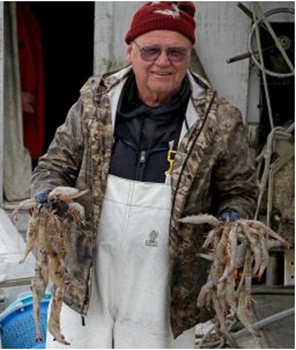 Doug Plash really can’t help himself, but you can blame it all on his roots. When he’s sitting at home on Plash Island on the banks of the Bon Secour River, the urge to head out in his boat and harvest the tasty crustaceans that are plentiful along Alabama’s Gulf Coast is overwhelming. “There’s a boat across the river named ‘I Gotta Go,’” Plash said in the wheelhouse of his shrimp boat named after his daughters, Melissa, Jennifer and Kristi. “I probably should have named my boat that.” Plash Island came into existence when the Intracoastal Canal was dug in the 1940s, separating the land that is surrounded by the Bon Secour River on the other sides. He is the fifth generation of Plashes to live on the island with his grandfathers buried on the island. One grandfather owned a freight company that used five schooners to haul beer from the Jax Brewery in New Orleans and hauled freight to Mobile. The semi-truck eventually left the schooners at the dock. photos, more, >>click to read<< 13:15
Doug Plash really can’t help himself, but you can blame it all on his roots. When he’s sitting at home on Plash Island on the banks of the Bon Secour River, the urge to head out in his boat and harvest the tasty crustaceans that are plentiful along Alabama’s Gulf Coast is overwhelming. “There’s a boat across the river named ‘I Gotta Go,’” Plash said in the wheelhouse of his shrimp boat named after his daughters, Melissa, Jennifer and Kristi. “I probably should have named my boat that.” Plash Island came into existence when the Intracoastal Canal was dug in the 1940s, separating the land that is surrounded by the Bon Secour River on the other sides. He is the fifth generation of Plashes to live on the island with his grandfathers buried on the island. One grandfather owned a freight company that used five schooners to haul beer from the Jax Brewery in New Orleans and hauled freight to Mobile. The semi-truck eventually left the schooners at the dock. photos, more, >>click to read<< 13:15
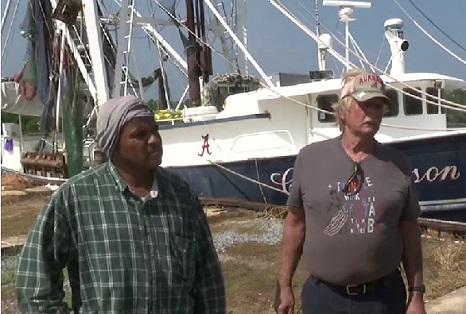
Hard-hit Bayou La Batre shrimpers say they need all the help they can get
Shrimpers say this is the best time of the year to harvest the crustaceans, but most of the shrimp boats in this seafood capital are tied up on the docks these days. James Mason, who has fished his entire life, said it simply isn’t profitable to go hunting for shrimp. “Haven’t been out in a year,” he said. The Wilmer resident said that to make ends meet, he has been working at a shipyard not far from where the Capt. Mason sits idle. He said he even tried working for a month on an oyster boat in New Jersey. Sen. Tommy Tuberville (R-Auburn) last month offered legislation that would create a task force to monitor foreign subsidies of shrimp and other agricultural products. He said he hopes that would greatly speed up enforcement. “We need some help, and I’m talking about urgent help,” he said. “If we don’t get some help, I don’t’ know if we’ll survive.” Added Mason: “Everybody in this bayou is hurting. Everybody. It doesn’t matter who it is.” Video, >>click to read<< 11:46
Beaufort’s shrimping industry on the brink. Local boats sit while imported catch floods market
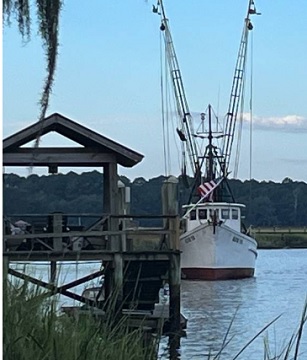 Thursday at Village Creek on St. Helena Island was another picture postcard-worthy morning with an American flag lilting in a slight southeast breeze near the shrimper Gracie Bell — idly tied to the dock. At Sea Eagle Market, a catch of shrimp swept up in the nets of trawlers in recent days are being processed by small group of dockside workers. They clean the valuable seafood crop harvested from waters as far away as North Carolina to the northeast coast of Florida before being sold locally and up and down the Palmetto State’s coast. After this recent harvest was completed, the boats returned, as they always do — to Village Creek, home base for shrimping on Fripp and Hunting Islands in Beaufort County and beyond. Against this serene backdrop, a storm is brewing that threatens destruction. It is not the threat of foul weather, these shrimpers have seen generations of bad weather days. The storm brewing is economic for the community of shrimpers and related businesses. >click to read< 10:10
Thursday at Village Creek on St. Helena Island was another picture postcard-worthy morning with an American flag lilting in a slight southeast breeze near the shrimper Gracie Bell — idly tied to the dock. At Sea Eagle Market, a catch of shrimp swept up in the nets of trawlers in recent days are being processed by small group of dockside workers. They clean the valuable seafood crop harvested from waters as far away as North Carolina to the northeast coast of Florida before being sold locally and up and down the Palmetto State’s coast. After this recent harvest was completed, the boats returned, as they always do — to Village Creek, home base for shrimping on Fripp and Hunting Islands in Beaufort County and beyond. Against this serene backdrop, a storm is brewing that threatens destruction. It is not the threat of foul weather, these shrimpers have seen generations of bad weather days. The storm brewing is economic for the community of shrimpers and related businesses. >click to read< 10:10
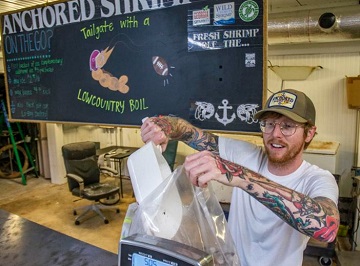
Shrimp Alliance request fisheries disaster declaration
There’s no other way to put it if you ask Aaron Wallace. Despite a decent catch by the eight shrimp boats that supply Anchored Shrimp Co. in Brunswick, the prices fishermen are getting for their hauls aren’t what they should be. “It’s been one of our toughest years,” Wallace said. He and his father, John Wallace, own Anchored Shrimp and operate the Gale Force, one of the boats that serve the company’s retail and wholesale business. The Southern Shrimp Alliance, for which John Wallace serves as a member of the board of directors, is calling the flood of imported shrimp a crisis. The alliance asked the governors of Alabama, Florida, Georgia, Louisiana, Mississippi, North Carolina, South Carolina and Texas in a letter on Aug. 25 to collectively request a fisheries disaster determination by the U.S. Secretary of Commerce for the U.S. shrimp fishery. >>click to read<< 11:06






 It’s been four months since Henry Barnes, the mayor of this struggling fishing village in southern Alabama, wrote to Donald Trump for help. A flood of cheap imported shrimp is killing the local seafood market, he wrote, thanks to “low and non-existent tariffs.” He invited Trump, for whom he voted, to come visit Bayou La Batre, known as Alabama’s Seafood Capital. But thus far he hasn’t heard back. “He’ll eventually get around to us,” said Barnes, a third-generation net-maker. “I mean, we’re just a small town.” In February, Rep. Clay Higgins, R-La., sent a letter asking Trump to assist the state’s seafood industry by imposing tariffs of up to 100% on shrimp and crawfish imports. Photos,
It’s been four months since Henry Barnes, the mayor of this struggling fishing village in southern Alabama, wrote to Donald Trump for help. A flood of cheap imported shrimp is killing the local seafood market, he wrote, thanks to “low and non-existent tariffs.” He invited Trump, for whom he voted, to come visit Bayou La Batre, known as Alabama’s Seafood Capital. But thus far he hasn’t heard back. “He’ll eventually get around to us,” said Barnes, a third-generation net-maker. “I mean, we’re just a small town.” In February, Rep. Clay Higgins, R-La., sent a letter asking Trump to assist the state’s seafood industry by imposing tariffs of up to 100% on shrimp and crawfish imports. Photos, 